Medical & Bathroom Step-Up Step Stools
Improve safety, comfort, and accessibility at home or in care settings with durable, foldable and medical-grade step stools.
Summary
Step-up stools play a critical role in both healthcare and home environments, offering essential height assistance while prioritising user safety. From the bathroom to the kitchen, these stools help patients, carers, elderly individuals, and children perform daily activities more safely and independently. With options like fold away step stools, small step stools, and wooden step stools, users can select products tailored for different needs whether medical use, bathroom safety, or mobility support.
What Are Medical and Bathroom Step-Up Step Stools?
Medical and bathroom step-up stools are height-boosting platforms designed for safe foot elevation. Often used by:
- Patients with limited mobility
- Carers assisting others during bathing or transfers
- Children accessing basins or toilets
- Elderly individuals needing a safe boost in the kitchen or bathroom
These stools often feature:
- Non-slip surfaces
- Handrails (for some models)
- Foldable or lightweight construction
- Anti-tip designs
- Medical-grade weight ratings
Step stools are a standard inclusion in many NDIS-funded home modifications, particularly in aged care, rehabilitation or disability-accessible homes.
Key Types of Step Stools Available
With dozens of designs on the market, understanding which step stool suits your environment is crucial. Here’s a breakdown:
-
1. Fold Away Step Stools
Fold away step stools are compact, portable options ideal for:
- Bathrooms with limited space
- Travelling patients or carers
- Short-term or emergency height needs
These stools fold flat, are easy to carry, and suit both home and medical use. Commonly made from durable plastic or aluminium.
-
2. Wooden Step Stools
Aesthetically pleasing and sturdy, wooden step stools are:
- Perfect for home bathrooms or kitchens
- More durable under heavier loads
- Ideal for use as children’s step stools
Make sure wooden stools include anti-slip pads or textured treads to prevent slips.
-
3. Small Step Stools
Designed for minor elevation, small step stools are great for:
- Transferring into bed
- Boosting access to low toilets
- Children using sinks independently
These stools are lightweight, often just 15–20cm in height, and offer high stability.
-
4. Children's Step Stools
Built with safety, fun, and size in mind:
- Feature anti-slip rubber and side grips
- Bright colours and rounded edges
- Perfect for handwashing, brushing teeth, or toilet training
They’re essential in both residential and childcare settings.
-
5. Kitchen Step Stools
For elderly or short-statured individuals in domestic kitchens:
- Provides access to high cupboards or microwaves
- Many come with one or two handrails
- Stability is key—especially when cooking or holding items
Look for wide treads and non-slip surfaces in kitchen step stools to avoid falls.
Featured Products
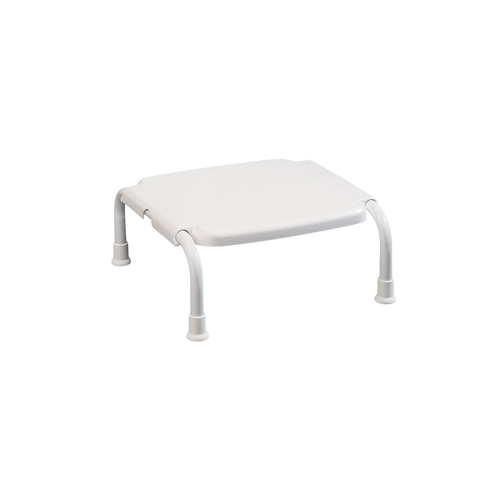
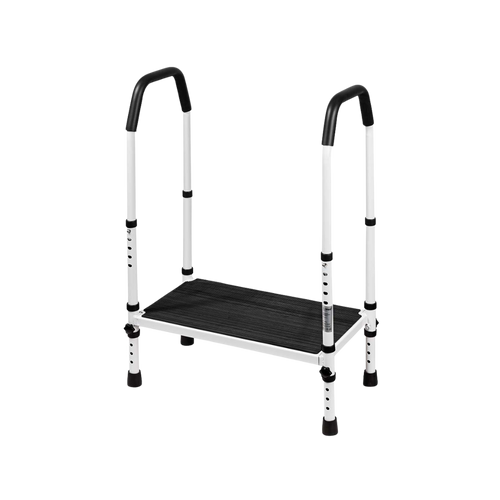
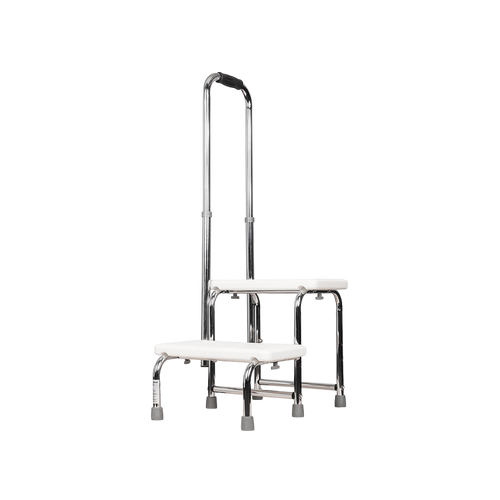
Safety Benefits of Step Stools in Medical and Aged Care Settings
Step stools are more than just convenience items—they actively reduce injury risks, particularly for the elderly and those with limited mobility.
1. Preventing Falls
Falls are the leading cause of hospitalisations among Australians aged 65 and older. Using a stable bathroom step-up stool helps prevent overreaching or unsafe climbing, especially in wet areas.
2. Enhancing Accessibility
Stools create access where no alternative exists—such as stepping into high showers or reaching medical supplies. They are invaluable tools in:
- Disability-inclusive bathrooms
- Physiotherapy settings
- Aged care homes
3. Reducing Carer Strain
Carers can reduce the need for awkward lifting or bending by using a foldable step up stool to assist clients during washing, dressing or toileting.
Step Stool Use in Bathrooms: What to Know
Bathrooms present unique challenges when it comes to safety and functionality. Slippery surfaces, hard edges, and tight spaces all require thoughtful equipment choices.
Best Practices for Bathroom Step Stools:
- Always place the stool on a dry, flat surface
- Choose stools with rubber feet and drainage holes
- Avoid wooden step stools unless designed for wet areas
- Keep within arm’s reach of grab rails or a support bar
NDIS-funded home modifications often include bathroom step stools alongside wall-mounted grab rails and walk-in shower adjustments.
Step-Up Stools for Children: Home and Clinic Use
Childrens step stools play a key role in helping kids:
- Reach basins to wash hands and brush teeth
- Use toilets independently
- Learn responsibility through safe access
These stools should:
- Be light enough for kids to move themselves
- Include anti-slip grip underneath and on top
- Have rounded corners to reduce injury risk
They are often used in paediatric therapy and occupational therapy settings to encourage participation in daily self-care tasks.
Conclusion
Medical and bathroom step-up stools are essential mobility and safety tools, not just convenience items. Whether for home use, aged care, disability support, or child safety, these stools bridge the gap—literally—between users and their daily needs.
From fold away step stools to wooden step stools for children, a wide range of designs ensures there’s a suitable solution for every space and circumstance. By selecting a stool that’s stable, slip-resistant and properly rated, you can greatly reduce fall risk, enhance independence, and promote dignity.
Upgrade your care or living space today.
Shop our trusted range of medical and bathroom step-up stools engineered for balance, safety, and confidence in every step.
📞 Call 1300 615 193 or order online at our website.
Medical and bathroom step-up step stools provide safe, stable height assistance for everyday tasks at home, in aged care, and in clinical environments. Designed to reduce fall risk and improve accessibility, these stools support elderly users, patients in recovery, carers, and children by offering secure footing in bathrooms, kitchens, and living spaces.
Built with non-slip surfaces and durable materials, medical-grade step stools help users step up with confidence while maintaining independence and dignity.
What this collection includes:
• Medical-grade step up stools with non-slip surfaces
• Bathroom step stools suitable for wet areas
• Step up stools with handrails for added support
• Fold away step stools for compact storage and travel
• Small step stools for low-height access and transfers
• Two-step stools for higher reach needs
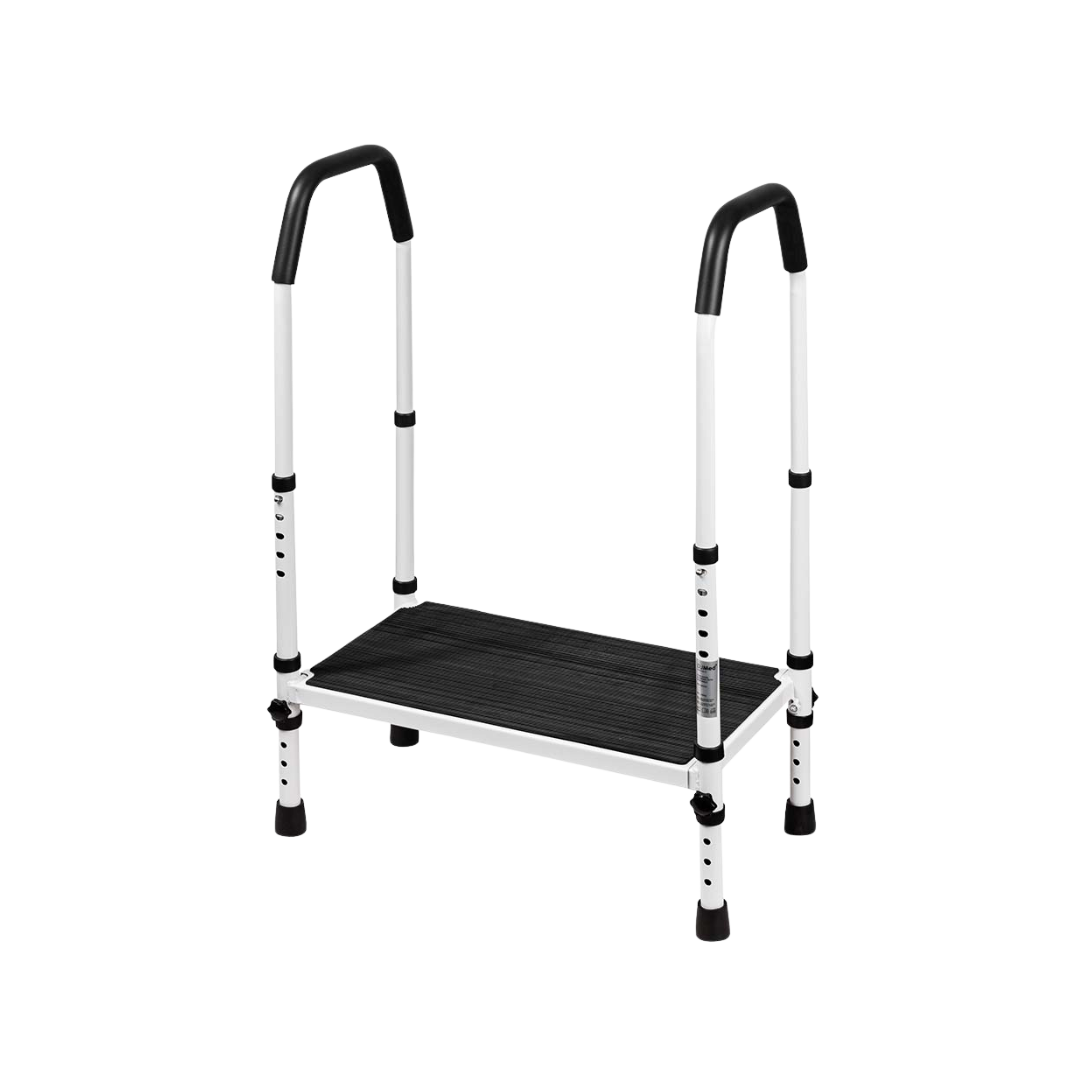
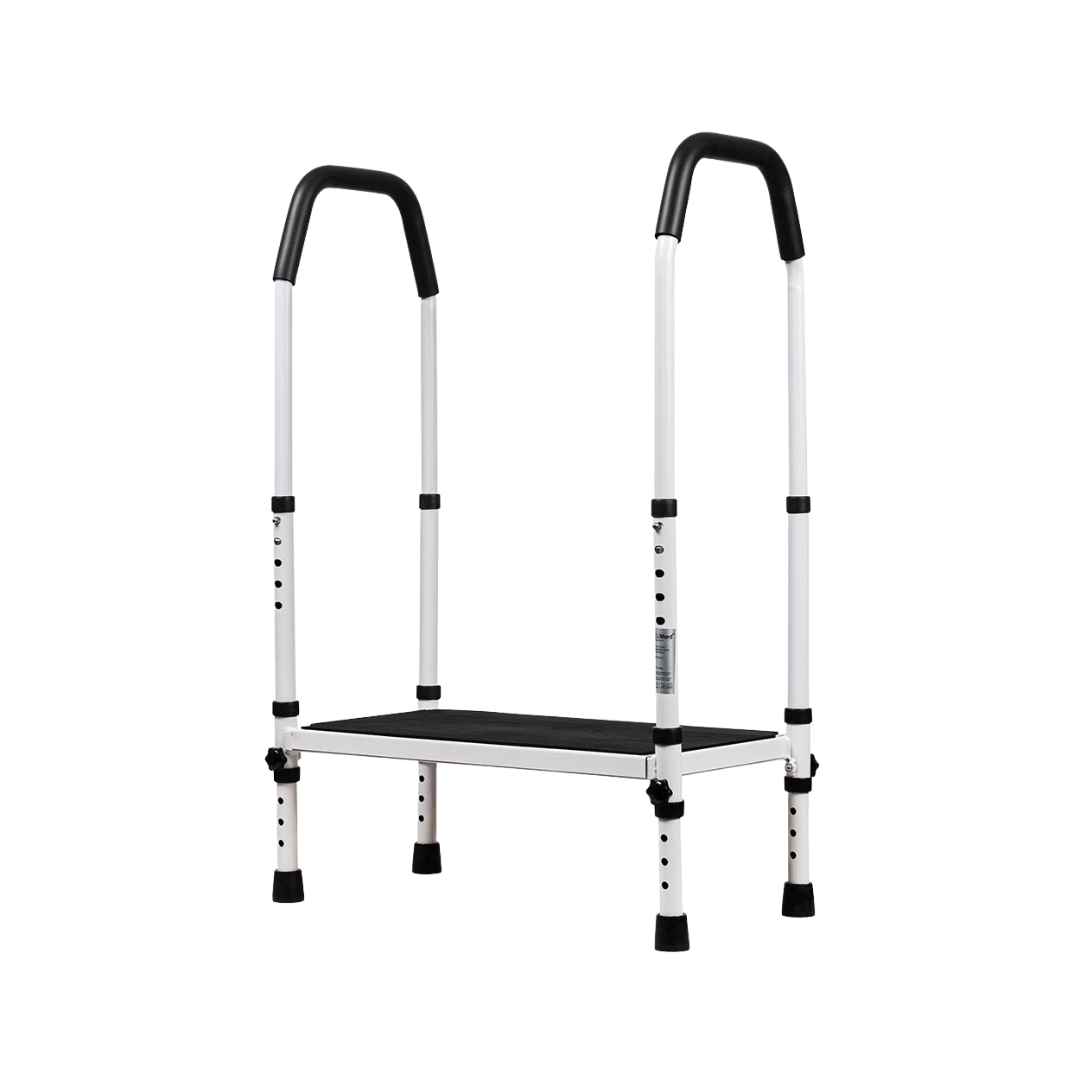
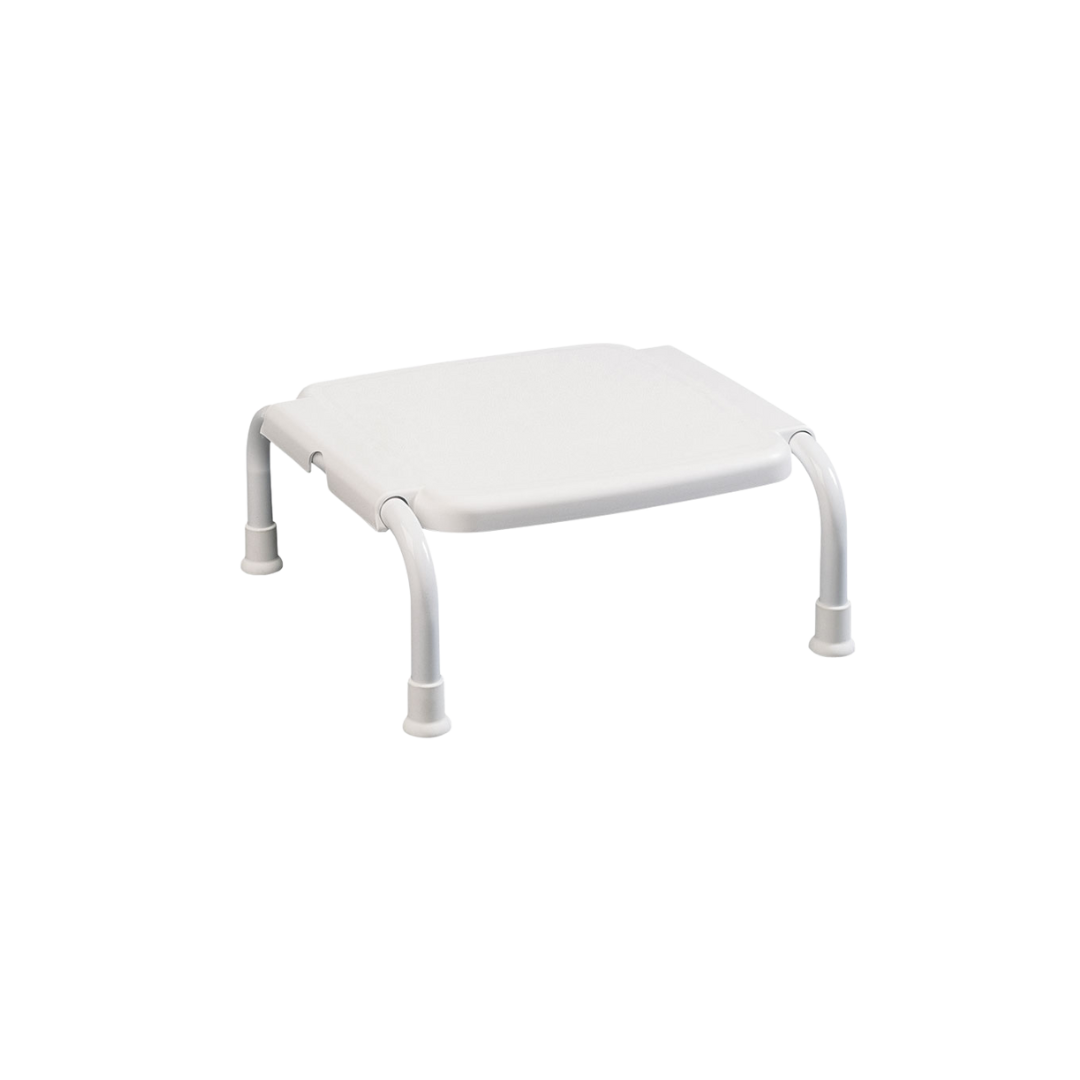
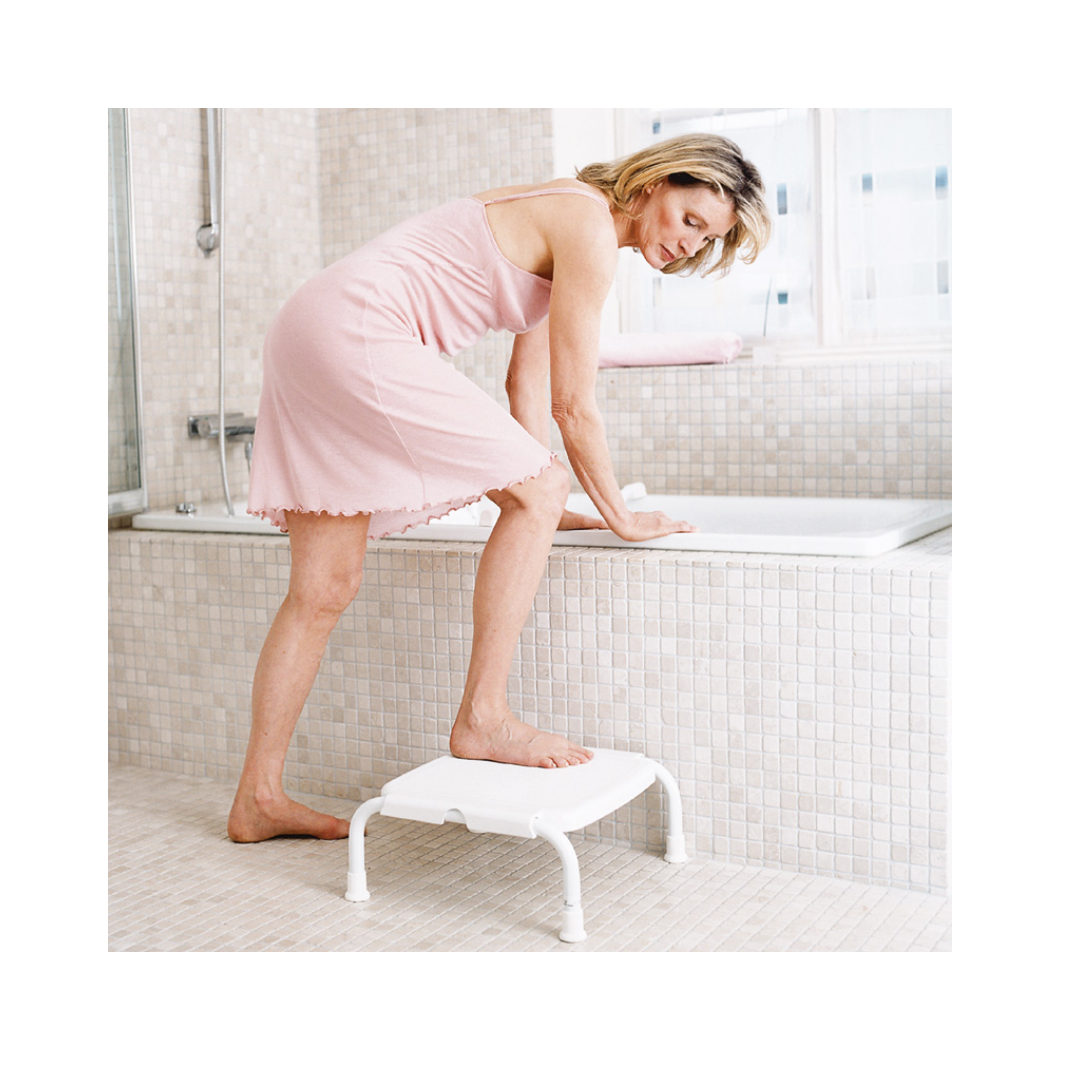
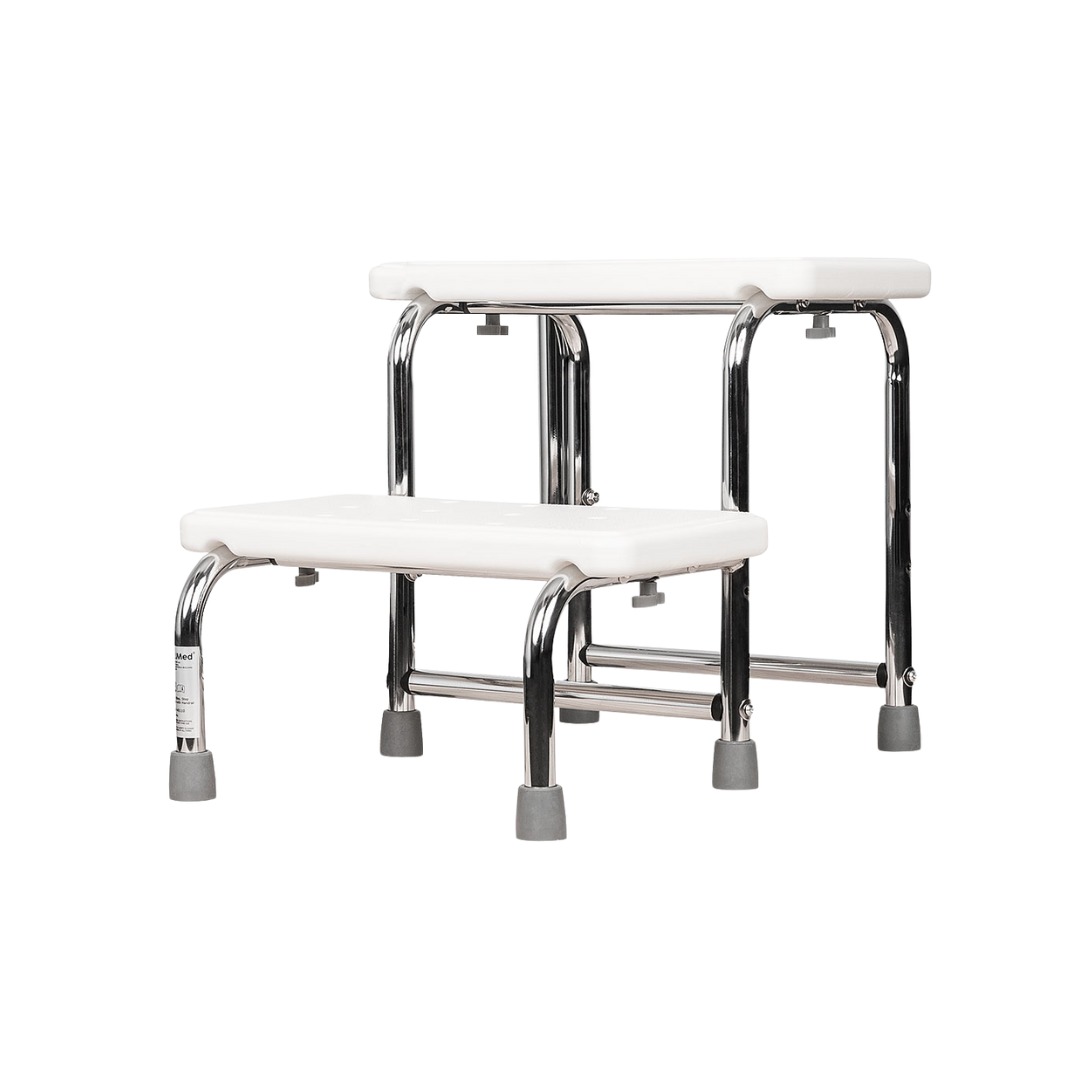
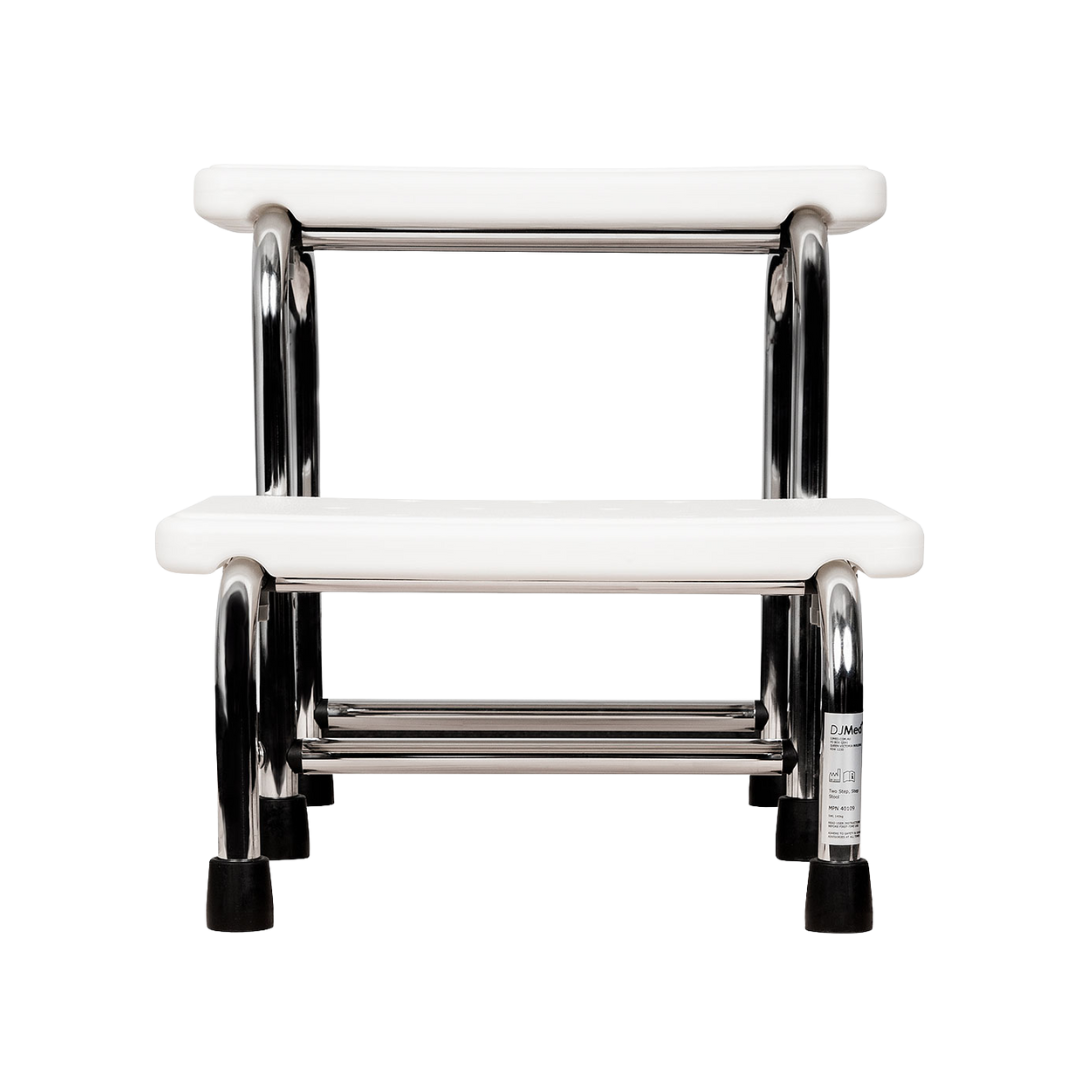
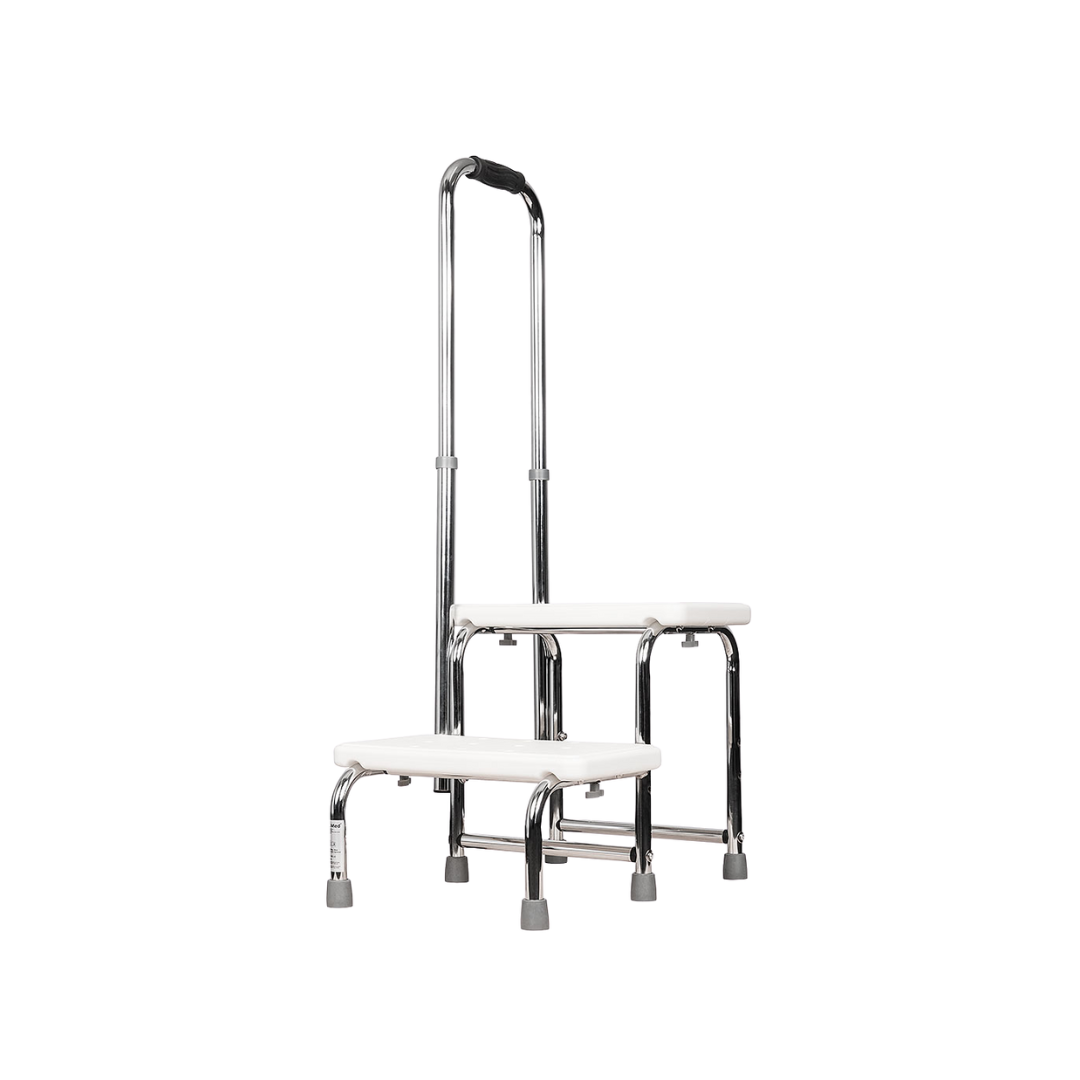
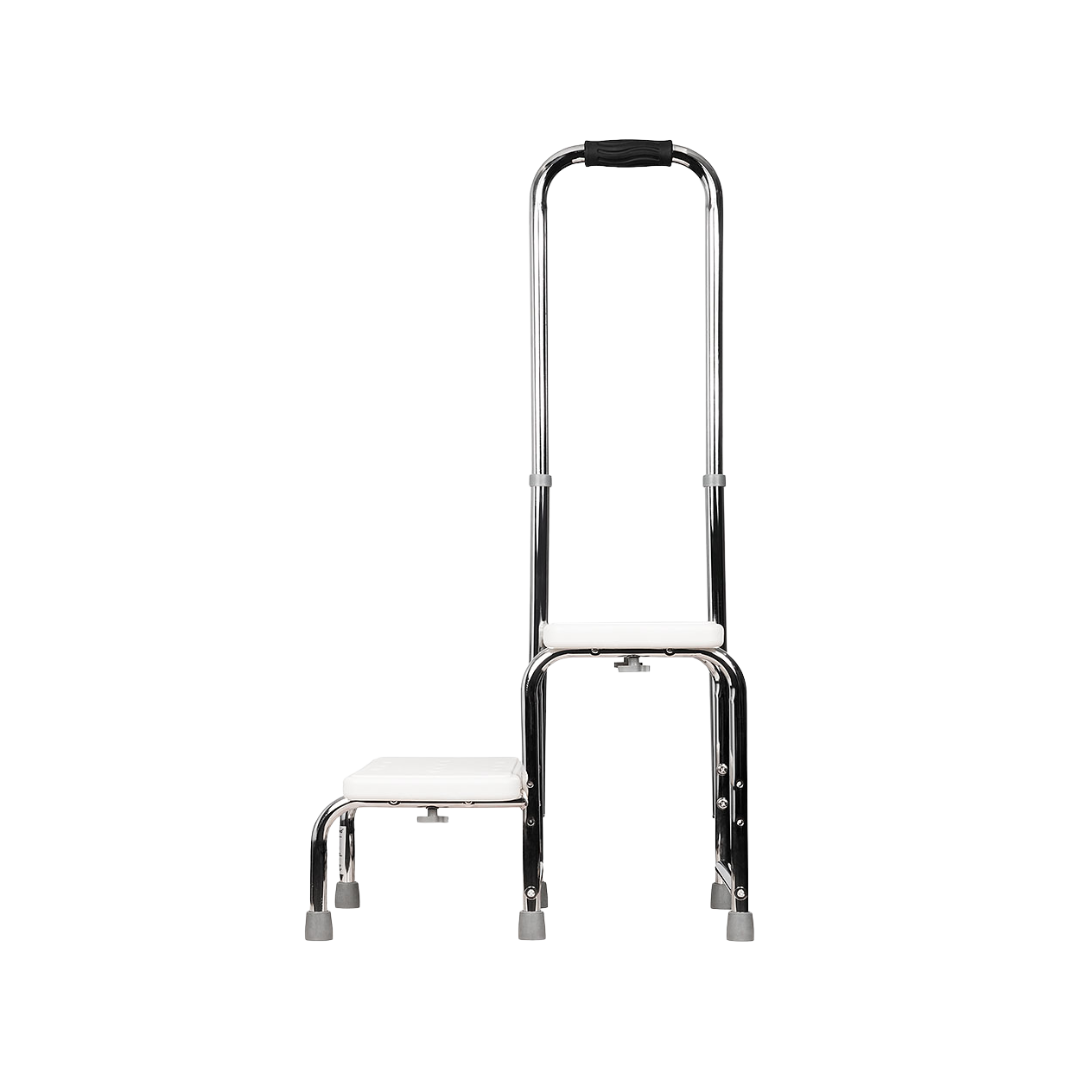
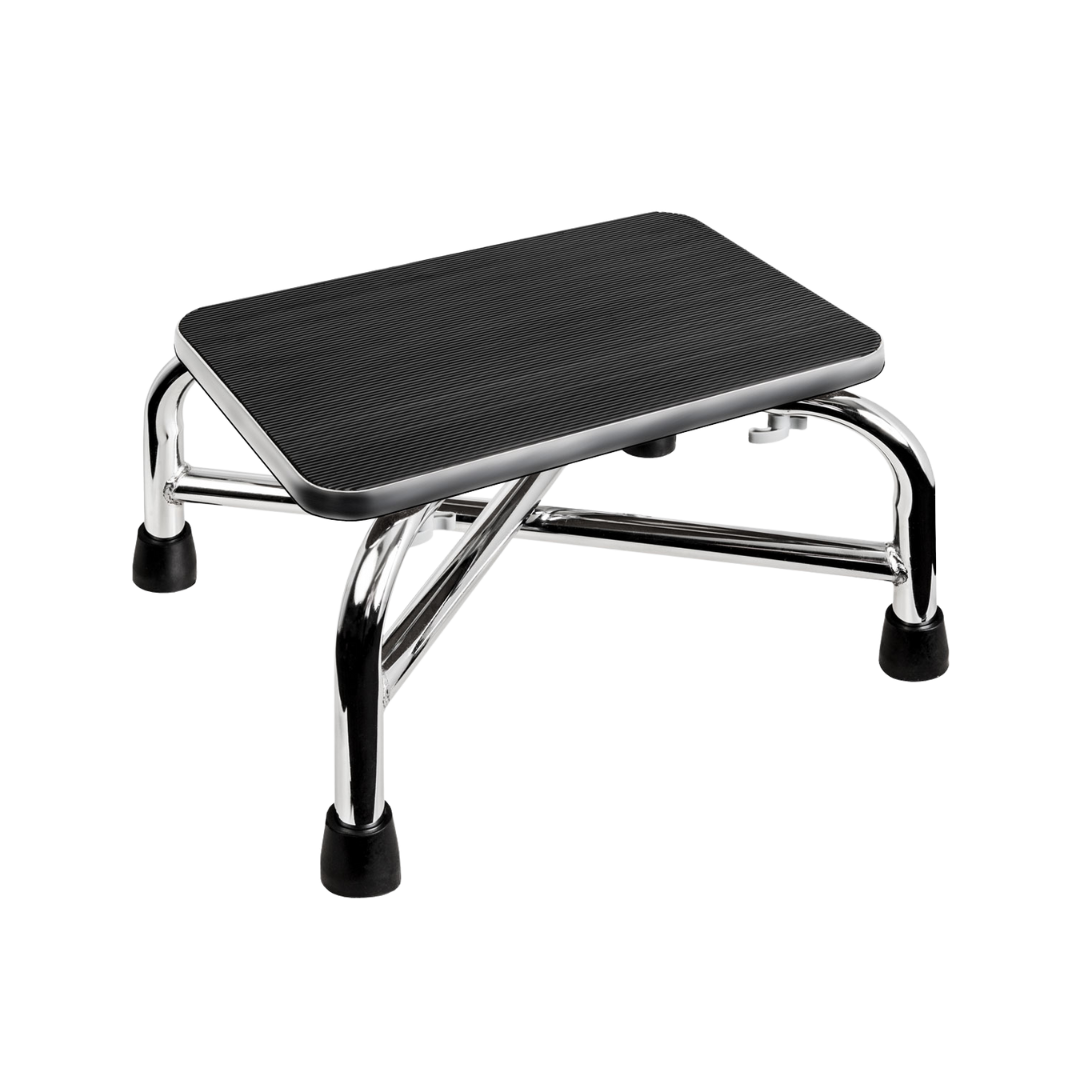
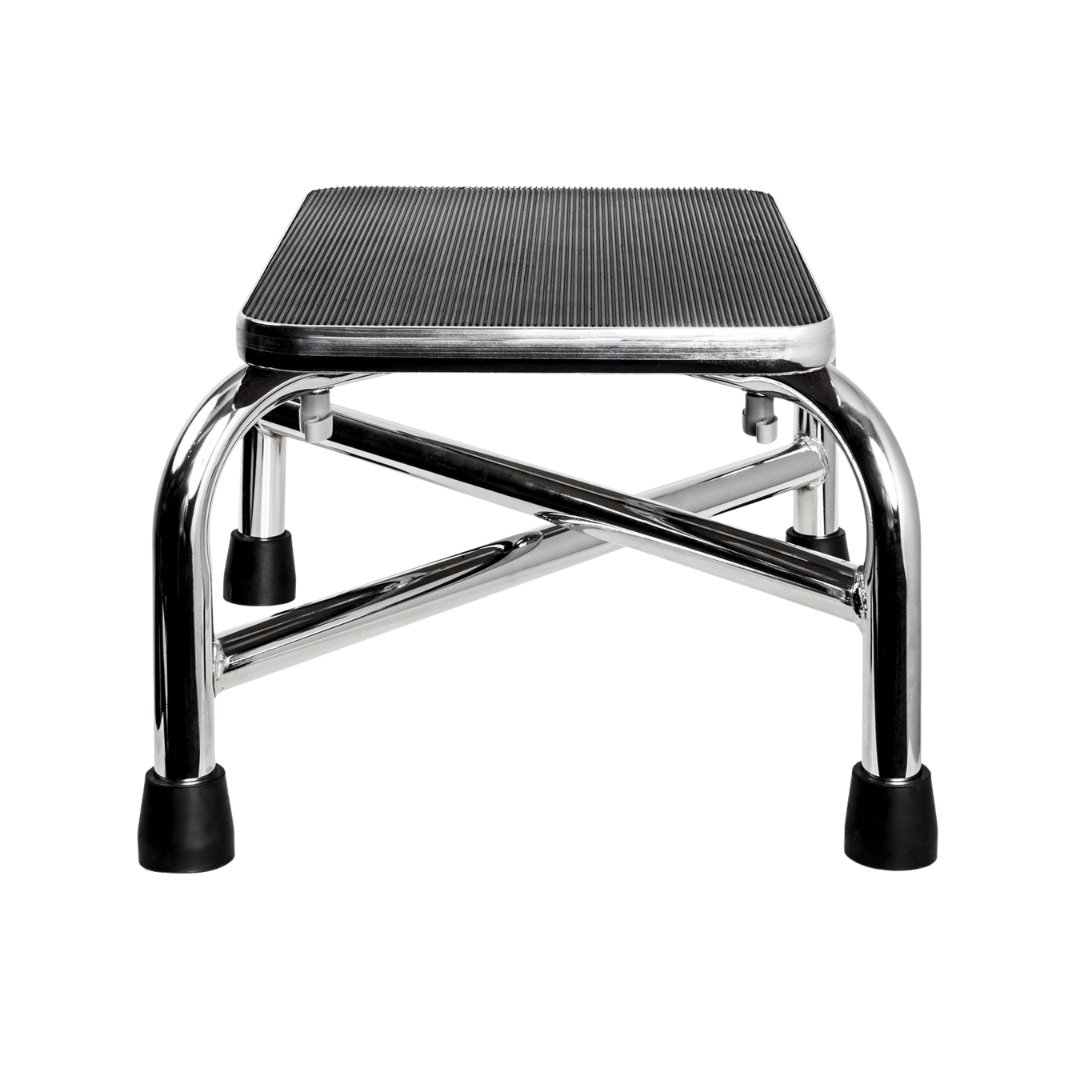
Recently viewed
FAQs
They provide safe height assistance for bathing, toileting, transfers, and reaching items, reducing fall risk in home and care settings.
Yes. Medical and bathroom step stools feature non-slip treads and rubber feet designed for stability on wet bathroom floors.
Elderly users, post-surgery patients, or anyone with balance issues benefit from handrails for extra stability and confidence.
Yes. This collection includes small step stools for children and medical-grade step stools designed to support adult and elderly users safely.
